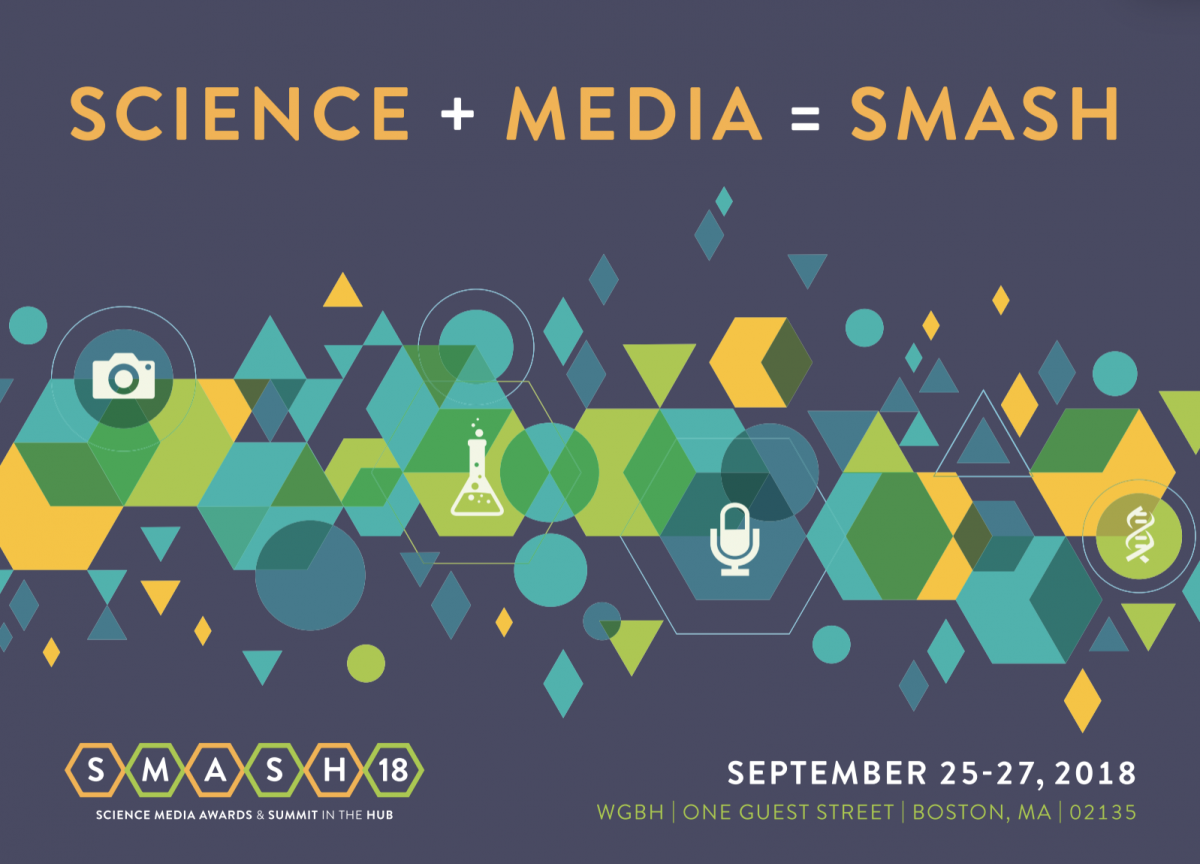Attend the Science Media Awards & Summit 2018 Sept. 25-27 in Boston
The 2018 Science Media Awards & Summit in the Hub (SMASH18) will take place in Boston from Sept. 25 to 27. Over 300 researchers, content creators, and scientists from around the globe to celebrate their work and discuss the future of science communications. The programming, curated by Jackson Hole WILD and WGBH, includes diverse media topics such as virtual reality, podcasts, film, artificial intelligence, social media, and tactile storytelling with sound and light. The culminating event of SMASH is the Jackson Hole Science Media Awards on Thursday Sept. 27. These awards celebrate the best in science media, and will be presented in 22 different craft categories covering topics from climate change to artificial intelligence.
Single day passes are available, so if you are headed to the nearby #InclusiveSciComm (Sept. 28-29 in Kingston, RI) or #ASTC18 (Sept. 29-Oct. 2 in Hartford, CT), this could be a good option. Here's a few sessions that might be of particular interest:
- Got Platform? Making Science Content in the Social Era (Tues. Sept. 25): From short-form video to long-form livestreams, storytellers are producing original science content that is smart, intentional and specific to target niche (yet committed) audiences. Learn how emerging video platforms like Facebook Watch, Snapchat Discover, YouTube and Twitch are rewriting the rules of science content production and expanding the choir of science video presenters and producers.
- Reality Check, Please (Tues. Sept. 25): How is immersive media becoming an essential tool for science storytelling? Leading lights from NASA Jet Propulsion Laboratory, The New York Times, the New Reality Company and France’s National Centre of Scientific Research weigh in on the incredible versatility of the virtual reality medium as their projects convey human and environmental life in exquisite detail.
- Podcasts: Science Media's Gateway Drug (Wed. Sept. 26): On-demand, habit-forming and possibly your favorite commuting companion. Why are science podcasts so addicting? The 48 million Americans who listen regularly can’t be wrong. This dialogue divulges tips, tricks and takeaways that science media creators from all backgrounds won’t want to miss. Prepare to binge listen!
- Let's Get Engaged! Landmark Research Revealed at SMASH (Wed. Sept. 26): Two landmark science media studies reveal their results for the first time ever at SMASH: KQED, in partnership with NPR, PBS, NOVA, Nature, Science Friday, Scientific American and others, reveal results from their first ever survey on the science media interests of that Holy Grail of science media audiences: millennials. The National Science Foundation-supported Delphi study follows up with the most effective science stories based on perspectives across media, STEM communication and research.
- Artificial Intelligence: Savior or Enslaver? (Thurs. Sept. 27): Today's AI has limitless promise and peril. Will it save us or enslave us? Self-driving vehicles can save millions of lives while putting millions out of work. Facebook has the potential to unite the world or fracture it by undermining democracy. Big data and algorithms can help cure disease but also make privacy an idea of the past. Can we control what might be our most powerful invention (and greatest threat) yet?
